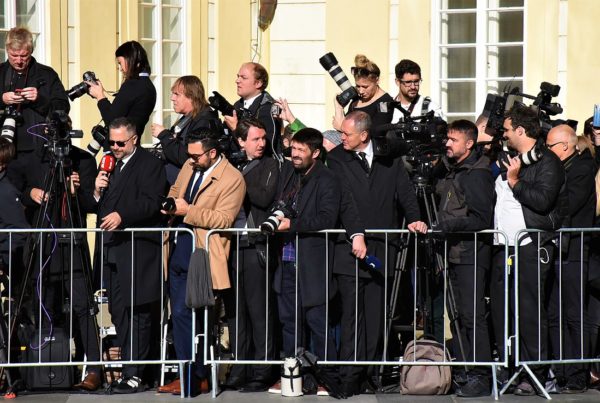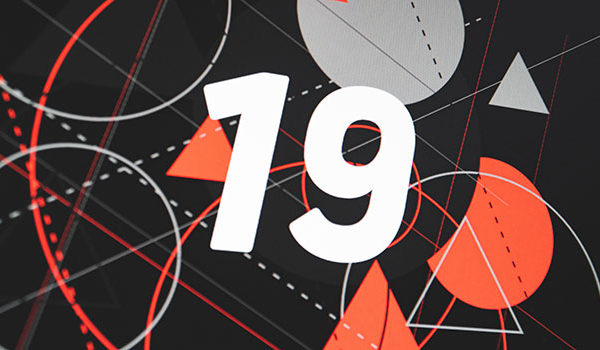By Jeremy Kinsman (Originally posted Mach 23, 2016 with OpenCanada.org. Re-printed with permission)
With more than 30 killed on Tuesday, former EU-based diplomat Jeremy Kinsman reflects on the complex make-up of communities now in the spotlight and the difficult task of preventing this kind of violence.
In 2001, not many weeks after the 9/11 terrorist attacks in the U.S., the Metropolitan Police advised me in London, where I was Canada’s High Commissioner and where we shared Grosvenor Square with the U.S. Embassy, that they fully expected a dreadful attack on their own city and that it would probably be on the Underground.
Despite massive preventive police work, it happened, on July 7, 2005, a deadly coordinated attack on the public transport system, in three locations, killing 52.
So, it was no surprise. What was a surprise was the identity of the four suicidal killers, all unknown to the authorities beforehand. Three of the four were British-born sons of Pakistani immigrants; the fourth was a convert to Islam born in Jamaica. They were by all measures, “British boys,” radicalized by extremist mosques and Al Qaeda messages on the Internet.
The tragedy intensified the self-examination in Britain of the causes of minority alienation and radicalization that had been going on for a decade. An enormous number of remedial steps were taken in terms of neighbourhood policing, greater inclusion of visible minority representatives in media, politics, and other circles, and in schooling cultures. Simultaneously, the surveillance capacities of the police were strengthened, with inevitable protest from many who feared immutable incursion on cherished civil liberties. The anti-immigrant forces in society received a boost in popular support, identifying with the emerging movement to remove the UK from the European Union which had nothing to do with the bombing but which seemed an inimical source of migrants. That dialectical argument goes on.
By the time the London bombing occurred, I had moved to Brussels – to the European Union.
I had lived in Brussels 30 years earlier, just after NATO moved there and when European institutions weren’t yet the overwhelming presence they are now. It was much more identifiably the capital city of the Kingdom of Belgium, a friendly and cultured country with a sort of underlay of loucheness. But on closer look, Belgium was visibly a society torn up by an identity crisis. The language and signage wars between Flemish and French communities had a juvenile vindictiveness that surpassed anything in Montreal.
Also, the NATO officers, Eurocrats, and corporate expatriates weren’t the only ones coming to live there. Moroccans by the thousands were immigrating, mostly male labourers from the Rif Valley. Immigration would be cut off for new migrants but not for tradition-bound wives imported from poor rural villages by the immigrants and even the next generation (86 percent married Moroccans).
When I next lived in Brussels, in 2002, the Moroccan community of a quarter-million was the largest immigrant group in Belgium, about 20 percent of the population of Brussels.
By then, Belgium’s dreary Flemish-Walloon quarrels had immobilized the country in a dysfunctional arrangement of patchwork unilingual domination, commune-by-commune, of schools, local government, social work, and police, in the local majority language. Brussels, which had a special status, was where the language groups intersected most but in an atmosphere of litigation and tension between the two competing communities.
Meanwhile the European Union had swollen from six to 28 members. Its institutions rose like concrete Leviathans in the centre of the city adjacent to the popular quarters where the Moroccan immigrants and their descendants lived in their own virtual country and culture, rarely intersecting with the thousands of very well-paid expatriate officials for whom Belgians and their affairs were utterly beside the point of the Great European Project.
The sight of thousands of Muslim faithful pouring on Fridays into the great Saudi-financed mosque a few hundred metres from our office was peaceful and consoling, but gave little insight into how the first-and-second generation immigrants in the dense Moroccan community of Molenbeek felt about Belgium.
The King Baudouin Foundation recently partnered with the University of Rabat to measure their feelings. Though most are “happy” in Belgium, only 7.5 percent feel “Belgian.” Though half live below the poverty line, 60 percent have homes in Morocco. Only 12 percent practice their Muslim faith, but the most trusted Belgian institutions are mosques. More speak Berber than Flemish. They are in effect a community imported from Morocco and sustained as such, inertly self-contained, and more or less impenetrable from outside.
In a country with debilitating and quarrelsome issues of identity, in a city where they live in isolation from the masses of wealthy European fonctionnaires, but not from the Brussels tastes of sensual appetite so celebrated by Jacques Brel, they grew up in a swirl of bad schools and crime, where, unlike Denmark, civic values and national identity were remote.
Yet, to the extent that the 2005 London bombers were “British” boys, it appears nearly certain that the killers this week in Brussels, and their associates responsible under ISIS command for the Paris attack were “Belgian.”
The danger of the antagonism within predates ISIS. A group named “Sharia4Belgium” was advocating for Salafist jihadism long before ISIS and its delusionary “caliphate” were invented. But when the ISIS war against Western culture grabbed the attention of young European men living on the fringes of their society, with identity issues, poor scholastic competency, and often a working relationship to drug trafficking, a toxically murderous connection was made.
Over 6,000 such young European men have found their way into the violent ISIS embrace. The thousand who have already returned to Europe from fighting in Syria and Iraq would constitute a nightmare for any security agency. But Belgium’s vulnerability is compounded by its fracturing into local police forces with weak national binding and direction within the EU where national sovereignty still inhibits the kind of cross-border seamless cooperation that ISIS’ networks that have pulled off the Paris atrocities and now the attacks in Brussels can manage.
What can be done?
There should be no doubt left that ISIS has to be defeated. To do that, a ceasefire in the Syrian civil war is essential, both to staunch the destabilizing flow of refugees into Europe and to permit the Syrian Army to focus on ISIS. The U.S. and Russia are in this together. Assad’s future is another issue, for another time, and for Syrians to decide.
But the longer-standing alienation within Europe of such combustible post-immigrant communities has to be healed, thoughtfully, painstakingly, and expensively, sur place. The immigrant communities themselves have to agree to ensure the dominance of the moderate forces that represent the great majority of Euro-Muslims. There needs to be zero tolerance of the sort of tribal and family omertas that protect violent fugitives and their infernal work. Euro and local police capacities and coordination have to be strengthened. It will be so hard to gain local confidence but it has to be done.
Several commentators see the Brussels attacks as an assault specifically on the EU and its viability as an ISIS adversary. It really is deeper and older than that. But the anti-EU personalities on the nativist European right wing will blame immigration for the violence, à la Donald Trump or Ted Cruz in the U.S., and celebrate nationalism.
They must be countered by a strong message of national political leadership, that does not seek to win support through projection of fear, detestation of “the other,” and that lays all blame on the EU, but one that instead mobilizes citizens to support inclusivity of immigrant communities within a shared pluralistic civic value system of tolerance. To save the centre, they must aid moderates to isolate the radicals. To win the moderates, they need to make them part of a shared central story. This is something Canada knows about.








